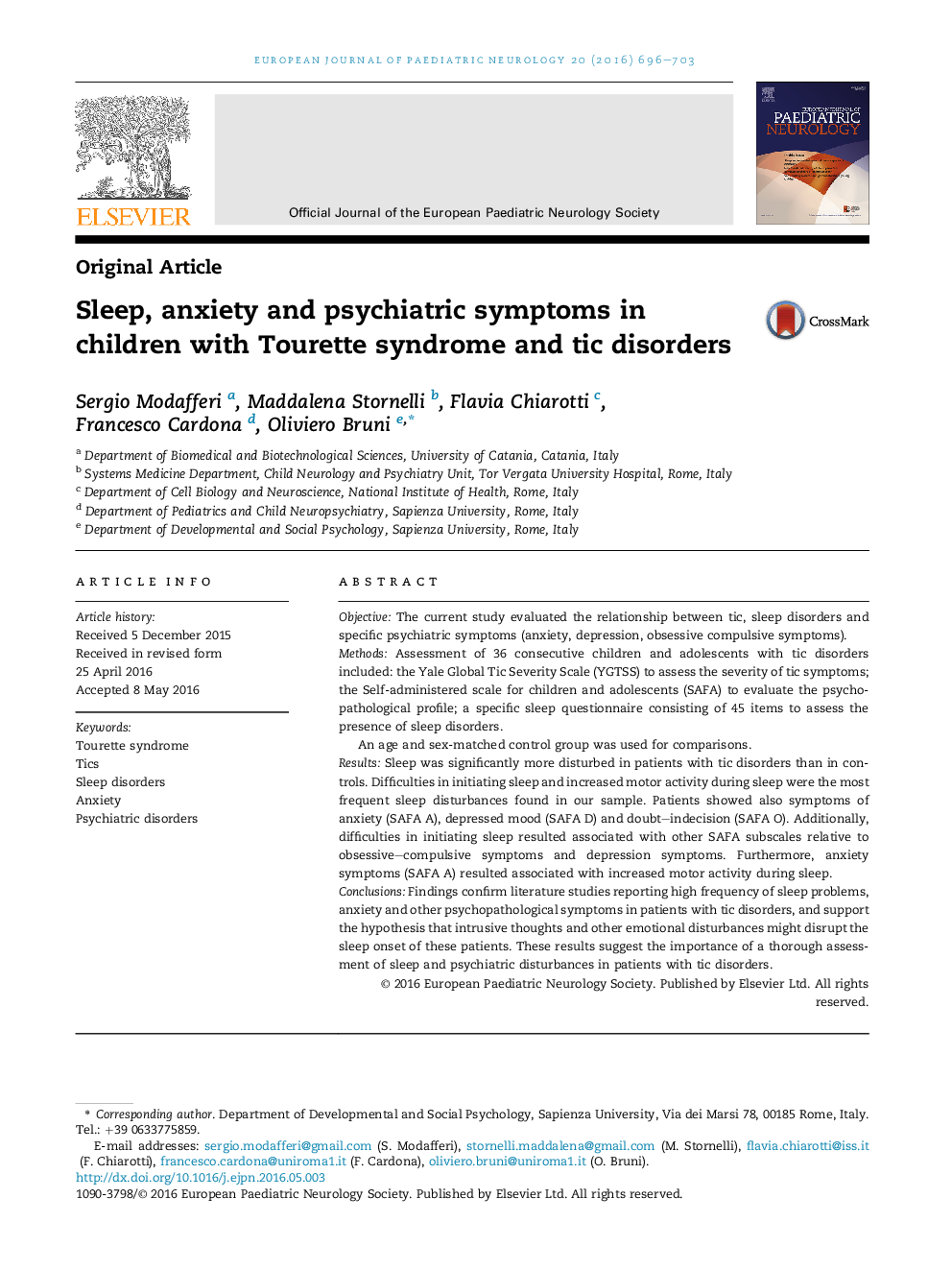| Article ID | Journal | Published Year | Pages | File Type |
|---|---|---|---|---|
| 3053468 | European Journal of Paediatric Neurology | 2016 | 8 Pages |
•Few studies evaluated the presence of sleep, anxiety and psychiatric disorders in patients with tic disorders.•In patients with tics difficulties in initiating sleep and increased motor activity were the most frequent sleep disturbances.•Difficulties in initiating sleep were associated with obsessive–compulsive symptoms and depression symptoms.•Increased motor activity during sleep was associated with anxiety symptoms.
ObjectiveThe current study evaluated the relationship between tic, sleep disorders and specific psychiatric symptoms (anxiety, depression, obsessive compulsive symptoms).MethodsAssessment of 36 consecutive children and adolescents with tic disorders included: the Yale Global Tic Severity Scale (YGTSS) to assess the severity of tic symptoms; the Self-administered scale for children and adolescents (SAFA) to evaluate the psychopathological profile; a specific sleep questionnaire consisting of 45 items to assess the presence of sleep disorders.An age and sex-matched control group was used for comparisons.ResultsSleep was significantly more disturbed in patients with tic disorders than in controls. Difficulties in initiating sleep and increased motor activity during sleep were the most frequent sleep disturbances found in our sample. Patients showed also symptoms of anxiety (SAFA A), depressed mood (SAFA D) and doubt–indecision (SAFA O). Additionally, difficulties in initiating sleep resulted associated with other SAFA subscales relative to obsessive–compulsive symptoms and depression symptoms. Furthermore, anxiety symptoms (SAFA A) resulted associated with increased motor activity during sleep.ConclusionsFindings confirm literature studies reporting high frequency of sleep problems, anxiety and other psychopathological symptoms in patients with tic disorders, and support the hypothesis that intrusive thoughts and other emotional disturbances might disrupt the sleep onset of these patients. These results suggest the importance of a thorough assessment of sleep and psychiatric disturbances in patients with tic disorders.
